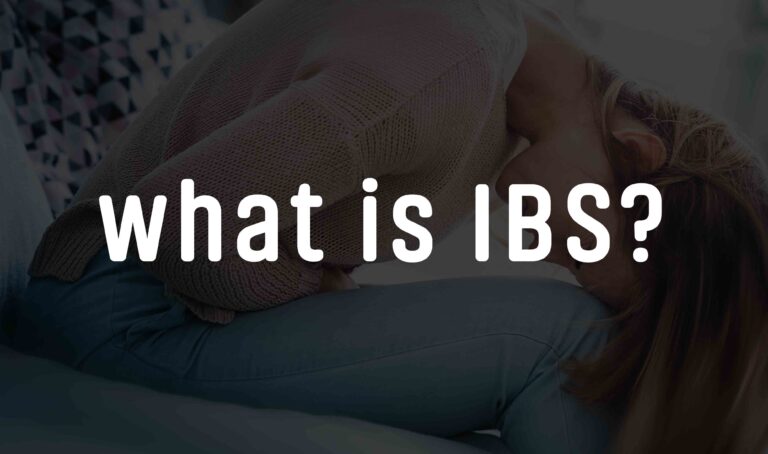The difference between IBD and IBS mostly looks very tough, though they have very different identities.
Gut troubles may be difficult, especially when two situations sound alike but behave very differently. Inflammatory Bowel Disease (IBD) and Irritable Bowel Syndrome (IBS) are each chronic digestive problems; however, they’re not the same thing. Knowing the distinction isn’t only a matter of semantics—it can be vital for your fitness. The difference between IBS and IBD
Below, we break down what each circumstance is, how they vary, and why it’s essential to get the proper analysis topics.
What Is IBD?
Inflammatory Bowel Disease is an umbrella term for issues that cause chronic inflammation in the digestive tract. The two foremost types are:
Crohn’s disorder – Can affect any a part of the digestive tract, from the mouth to the anus, and frequently spreads deep into the bowel wall.
Ulcerative colitis – Typically impacts handiest the large gut (colon) and rectum, concerning non-stop areas of infection and ulcers.
IBD is an autoimmune condition. The immune system mistakenly attacks the digestive tract, main to ongoing infection, damage, and, once in a while, severe headaches.
What Is IBS?
Irritable Bowel Syndrome is a practical gastrointestinal disorder. That approach the digestive system appears ordinary on checks but doesn’t feature as it need to. IBS impacts how the gut and brain speak, main to modifications in motility (how food actions) and sensitivity.
There are 3 most important IBS subtypes:
IBS-D (diarrhea-major)
IBS-C (constipation-main)
IBS-M (combined—both diarrhea and constipation)
Key Differences Between IBD and IBS
| Feature | IBD | IBS |
|---|---|---|
| Cause | Autoimmune-driven inflammation | Gut-brain communication dysfunction |
| Visible Damage | Yes – ulcers, inflammation, strictures | No – gut appears normal on colonoscopy |
| Complications | Can be life-threatening, risk of colon cancer | No long-term physical damage |
| Treatment | Medications to control inflammation, sometimes surgery | Lifestyle changes, diet modification, stress management |
| Prognosis | Chronic, relapsing disease | Chronic but non-progressive |
Symptoms: Where They Overlap and Where They Don’t
Shared symptoms:
Abdominal pain or cramping, Bloating, Diarrhea
More is not unusual in IBD:
Bloody stools, Unexplained weight reduction, Persistent fever, Fatigue due to anemia, Loss of urge for food
More common in IBS:
Relief of ache after a bowel movement
Symptoms triggered by means of particular ingredients or stress
Alternating diarrhea and constipation
The red flag here: If you observe blood on your stool, accidental weight reduction, or ongoing fever, that’s not common for IBS and should prompt immediate medical attention.
Causes and Risk Factors
IBD Causes:
Immune gadget malfunction – The immune device attacks wholesome intestinal cells.
Genetics – A robust circle of relatives history increases the risk.
Environmental triggers – Smoking, positive infections, and probably eating regimen.
IBS Causes:
Gut-mind axis modifications – The nerves controlling the intestines are hypersensitive.
Gut microbiome imbalances – Too few or too many certain microorganisms.
Triggers – Stress, hormonal changes, or positive foods (like excessive-FODMAP foods).
Diagnosis: Why Accuracy Matters
Misdiagnosing IBS while you truly have IBD can put off life-saving remedies. The diagnostic procedure differs:
IBD Tests:
Blood tests (test for anemia, irritation markers like CRP)
Stool exams (test for blood or inflammatory proteins like calprotectin)
Colonoscopy and imaging (to visually confirm infection or ulcers)
IBS Tests:
Primarily, a prognosis of exclusion—checks rule out other causes.
No structural damage visible in imaging or colonoscopy.
Treatment Approaches
IBD Treatment:
Anti-inflammatory drugs (aminosalicylates, corticosteroids)
Immunosuppressants and biologics (to target immune overactivity)
Surgery if headaches arise (like bowel obstruction or extreme harm)
IBS Treatment:
Dietary changes (low-FODMAP, fiber modifications)
Medications for symptoms (antispasmodics, laxatives, antidiarrheals)
Stress management (CBT, mindfulness)

Why It Matters for Your Gut Health
- The stakes are much better with IBD. Untreated inflammation can:
- Narrow or block sections of the bowel (strictures)
- Cause perforations inside the gut
- Increase colon cancer hazard
- Lead to malnutrition and excessive systemic infection
When to See a Doctor Immediately
- Blood in stool
- Unexplained weight loss
- Ongoing diarrhoea that doesn’t improve
- Fever with digestive signs and symptoms
- Severe stomach pain
- These might also imply IBD or some other serious circumstance, not IBS.
Bottom Line
IBD and IBS may additionally sound alike, but they’re basically specific.
IBD = chronic inflammation, which could harm your gut and average fitness.
IBS = gut dysfunction without bodily harm.
The difference between IBD and IBS is knowing which you have, which will lead you to the right treatment—and averting unnecessary complications. If you’re uncertain, don’t guess. Talk to your health practitioner, get examined, and guard your intestinal health.
Your digestive device is your frame’s second mind. Treat it with the respect—and the scientific interest—it deserves.






